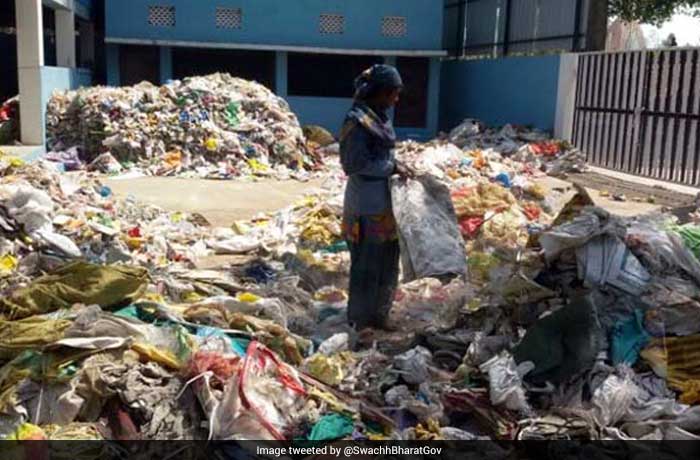Waste Management: 5 Simple Ways To Reduce Waste At Home
India generates around 60 million tonnes of garbage every single day and almost 45 million tonnes, a whopping 75%, of the garbage are dumped untreated in the landfills. Delhi and Mumbai together generate about 10 million tonnes of garbage every day. If we do not reduce waste and generate it at current rate, India will need 1,240 hectares of land, which is the size of a metropolitan city like Bengaluru, to dump country's waste. The situation is alarming and needs everyone to start taking immediate action to deal with the garbage problem. First step is to reduce the waste being generated at individual level. Here's a 5 step guide on how to reduce the waste generated -
Do Away With Plastic
According to a study by World Economic Forum, oceans globally will have more plastic than fish by 2050. The menace of plastic pollution is not only an alarming issue but is also a bigger threat than nuclear weapons (no, this was mentioned in Anisha's copy), as one plastic bottle takes upto 1000 years to decompose itself. Plastic, when dumped into landfills release harmful greenhouse gases.
The only solution is to junk plastic and look for alternatives. For instance, substitute plastic cups and plastic pens with paper cups and vintage ink pens respectively. Ditch plastic straws, instead sip your drinks. To make nine plastic bags is takes as much as energy as driving a car for one kilometre. Besides, plastic bags are harmful for the environment. So for the next shopping expedition, replace plastic bag with a mesh bag that comes with a drawstring or a cloth bag. Denim bags are a great way to reuse old or worn out jeans.
.jpg)
Segregate Waste
Simply start by getting colour coated bins. Differentiate the bins into following: Green for organic, yellow for glass, white for paper, grey for metal, red for hazard and blue for plastic. Segregate waste into two categories - Bio Degradable and Non-Bio-Degradable.
Put wet wastes like leftover foods, vegetables, peels etc. in an organic dustbin which can later be used for composting Segregation of waste can reduce the garbage burden on the already overflowing landfills, thereby curbing the pollution levels.
.jpg)
Adopt Composting
Swachh Bharat Abhiyan has contributed in reducing the waste generation through composting. The waste to compost conversion has been increased to 13.13 lakh tonnes per year as per the government statistics 1.5 lakh tonnes per year in March 2016.
Composting can reduce household waste generation by 30 per cent. Composting is also beneficial for plant growth as it provides many essential nutrients for them and it can also be used as fertilizer. It is believed that a family of 4 can easily reduce their waste from 1000 Kg to less than 100 kg every year if they adopt segregation and composting.
.jpg)
Go Paperless
Papers account for almost 35 per cent of the waste that is dumped in landfills. From paper cups to napkins everything ends up in landfills from the trash can. To reduce paper waste, start using old clothes like rags for cleaning around the house, instead of paper towels. Switch to hand towels from paper napkins in your kitchen. Avoid using paper plates in house parties.
.jpg)
Adopt 3 R's
A simple way of contributing to Swachh Bharat Abhiyan and making a small difference towards waste disposal is to adopt the 3 R's - Reduce, Reuse and Recycle. Landfills across India are overloaded and it is estimated that if waste generation is not reduced, then by 2030 the waste generation is likely increase to 165 million tonnes from 62 million tonnes.
Re-purposing your household trash is a good way to reduce waste. For example, instead of throwing the plastic bottles use them to decorate your house and make other DIY plastic showpieces. Switch to items that can be refilled like printer cartridges or glue, reuse plastic folders. Use old wood and pallets to build compost bins. Reuse toiletries like shampoo bottles as cell charging stations, old toothbrushes as cleaning tools.

















